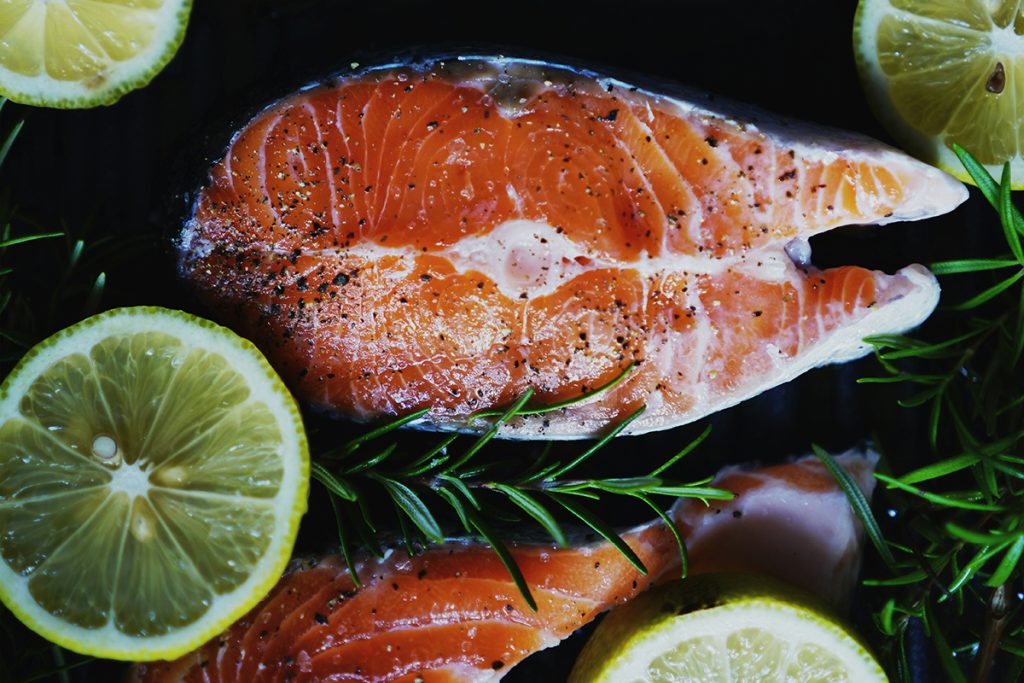Why Omega-3 is vital for an optimal gut health

When oily fish is discussed in the context of health, it’s often in relation to brain function, and for good reason. However, you might be surprised to learn that it also benefits your gut microbiome, despite lacking fiber. Fish is rich in omega-3 fats, which positively impact both your brain and gut microbiome.
What are Omega-3 foods?
Omega-3s assist your gut bacteria in producing more beneficial short-chain fatty acids. Research shows that individuals with higher omega-3 levels in their blood tend to have a more diverse gut microbiome and a greater abundance of ‘good’ bacteria, even if their fiber intake is low.
Interestingly, fish may also contain a small amount of polyphenols, thanks to their diet of polyphenol-rich algae, which can accumulate in their bodies.
Returning to the brain, omega-3s play a crucial role. The brain is composed of 75% water, and if it were dried out, 60% of the remaining matter would be fat, with one-third of that fat being omega-3s, particularly DHA. Omega-3s are essential for optimal brain function throughout life.
DHA, a type of omega-3, is vital for brain health as it is a key component of brain cell membranes, including neurons. To ensure adequate DHA levels, it’s important to obtain it from your diet.

Fish is an excellent source of DHA. However, while omega-3 ALA found in plant foods like walnuts, flaxseeds, and chia seeds is beneficial, it converts poorly to DHA, making it more challenging to meet your brain’s needs through plant sources alone.
So, should we eat more fish?
A 2019 meta-analysis of randomized controlled trials found that taking 1g or more of omega-3s (DHA and EPA) daily significantly alleviated depressive symptoms. While a supplement isn’t quite the same as eating fish, it does suggest that we might need to consume more fish than the current national guideline of at least one portion of oily fish per week, which only provides half the recommended amount of omega-3s.
It is recommended to eat at least two portions of oily fish per week to provide around 6g of omega-3s, a quantity comparable to the omega-3 supplements shown to impact depression positively in the meta-analysis.
Regular fish consumption is associated with retaining more grey matter in crucial brain regions like the hippocampus and prefrontal cortex later in life, which is linked to better cognitive function and overall brain health.

Eating more than four portions of fish per week—double the national guidelines—has been associated with a slower age-related decline in memory. Those who consume more fish often have memory abilities comparable to individuals four years younger.
Researchers studying nearly 8,000 participants over five to ten years found that eating fish was a key dietary factor in maintaining better mental faculties compared to peers. After all, who doesn’t want to excel mentally?
So, find your favorite fish dish—whether it’s sushi, fish curry, smoked salmon with scrambled eggs, or a whole fish grilled with herbs and lemon—and enjoy the benefits of increased fish consumption.
DHA Omega-3 only thrives with its nutrient companions
Fish is not only an excellent source of protein and omega-3s but also provides B vitamins, choline, and iron—key nutrients that support brain health and work in tandem with omega-3 DHA.
Just like any superstar, DHA needs a supporting cast to truly shine. It depends on B vitamins and choline to function effectively; without these nutrients, its benefits are diminished. This could explain the mixed results seen in studies on omega-3 supplements and their effects on mood and cognition.

DHA needs to be accompanied by other nutrients to effectively reach your brain, similar to how a partygoer would prefer some friends by their side. DHA transforms into a different type of fat, phosphatidylcholine, when combined with choline by B vitamins—only then can it be utilized effectively by the brain.
Phosphatidylcholine is crucial for the cell membranes of brain neurons and essential for their proper function. You can also find choline in foods like meat and eggs, and B vitamins in dark-green leafy vegetables.
I don’t eat fish. How can I include Omega-3s in my diet?
If you don’t eat fish, you can still obtain omega-3s from plant sources like walnuts, flaxseeds, and chia seeds, which provide ALA. However, ALA conversion to DHA in your body is inefficient.
For a direct source of DHA and EPA without fish, consider algae oil supplements. These are an excellent option for vegans, vegetarians, or anyone who avoids fish or simply doesn’t like it. Additionally, ensure you’re consuming enough B vitamins by eating dark-green leafy vegetables, whole grains, and beans.




















